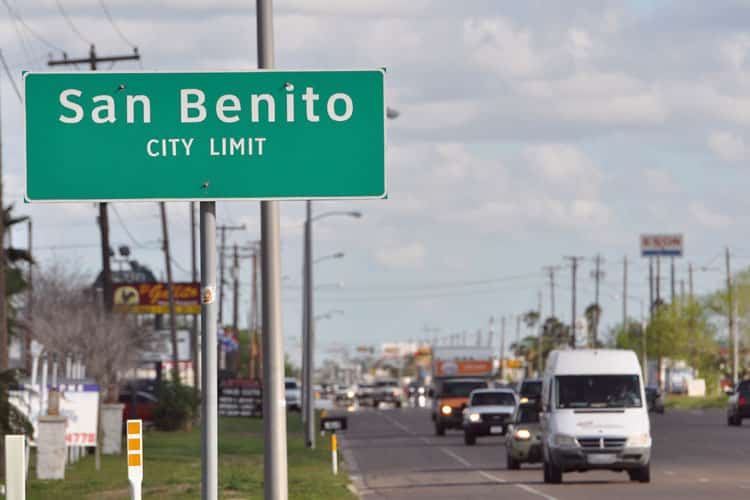SAN BENITO — The city is counting on reaping future property tax dollars from a proposed $115 million hotel and convention center project that could create more than 1,000 jobs.
Earlier this week, city commissioners passed an ordinance creating a tax increment reinvestment zone along the 115-acre proposed project site near FM 509 and Shafer Road, with Commissioner Pete Galvan casting the dissenting vote.
Tax increment reinvestment zones are public financing tools used to help fund economic development projects in which properties’ assessed values are frozen based on the theory those values will increase. The increased property taxes collected would make up the increment.
On Wednesday, Linda Merritt, the project’s representative, said developer David Miles approached city officials with a request to create the tax zone.
“It is a very productive incentive,” she said. “It’s a mutually beneficial opportunity.”
Across a swath of farmland, Miles, with Friendswood-based Western Spherical Developers, is proposing the city’s biggest project in decades — a hotel and convention center development spurring a commercial “village” he says will generate $100 million in retail sales, hotel and property tax revenue for the city during a 20-year period.
“It’s potential (revenue),” Mayor Rick Guerra said Wednesday, referring to revenue generated through the tax zone. “I see it as potential business coming in. It’s going to be up to the developer to get the stores up. San Benito has been dormant for years and this is a major project. Let’s get something new here in San Benito.”
During the first five years of the tax zone’s 15-year lifespan, Miles would derive 100 percent of revenue generated through the project’s property taxes, City Commissioner Rene Garcia said.
Afterward, the city begins reaping the tax zone’s revenue.
During the tax zone’s second five years, Miles would draw 75 percent while the city would take 25 percent of the revenue, Garcia said.
Then, during the tax zone’s last five years, he said, the city would derive 50 percent of revenue.
After the tax zone’s expiration in 2036, the city would collect all property taxes, he said.
“I feel this is the best way to approach this project,” Garcia said, referring to the tax zone. “We have to find ways we can attract and lure economic development. This land stands in the center of Cameron County. We feel it’s prime land available for development and I feel there’s a very good possibility the development of this land will bring us property and sales taxes we can invest in the city.”
During a meeting Tuesday, City Attorney Mark Sossi told commissioners the tax zone won’t cost the city.
“San Benito is not putting any money into this — nothing,” he said.
Instead, Miles would derive money from the tax zone.
“The only money he will be able to get in the form of a (tax zone) is that money he will generate himself through the increase in the tax increment in the zone in which he’s building on,” Sossi told commissioners. “Right now, you have agricultural land. The infrastructure is going to support stores, a commercial development, a hotel, a convention center. The developer is reimbursed as taxes are collected from the (the tax zone) based on the difference of the tax increment between what its assessed value is right now and what it will be once he puts in the development. He’s reimbursed as the money comes into the (tax zone).”
In April, commissioners agreed to offer Miles tax breaks.
What would become the city’s biggest project in decades would create 1,013 jobs along with an additional 1,077 jobs during the three-year construction period, he said.
As part of the three-phased project, Miles is proposing the development of a sprawling “village” featuring two hotels, an entertainment center, a sports complex, restaurants and retail shops along with a five-acre “Crystal Lagoon.”
About three years ago, Tammy Huerta, daughter of the late Grammy-award winning singer Freddy Fender, helped spark talks with De La Rosa, Miles said.
Two House bills would help Miles fund costs through hotel occupancy tax revenue.
In 2019, city officials worked with state Sen. Eddie Lucio Jr. and state Rep. Eddie Lucio III to push for House Bills 4347 and 2199, which allow cities to spend hotel occupancy tax revenue generated through developments to fund construction of convention centers and sports and entertainment projects.
The Epicenter project has spurred the creation of the city’s second tax increment reinvestment zone.
Since its creation in 2009, the city’s first tax zone surrounding the H-E-B store and other business areas here has generated about $1.8 million, city spokesman David Favila stated.




